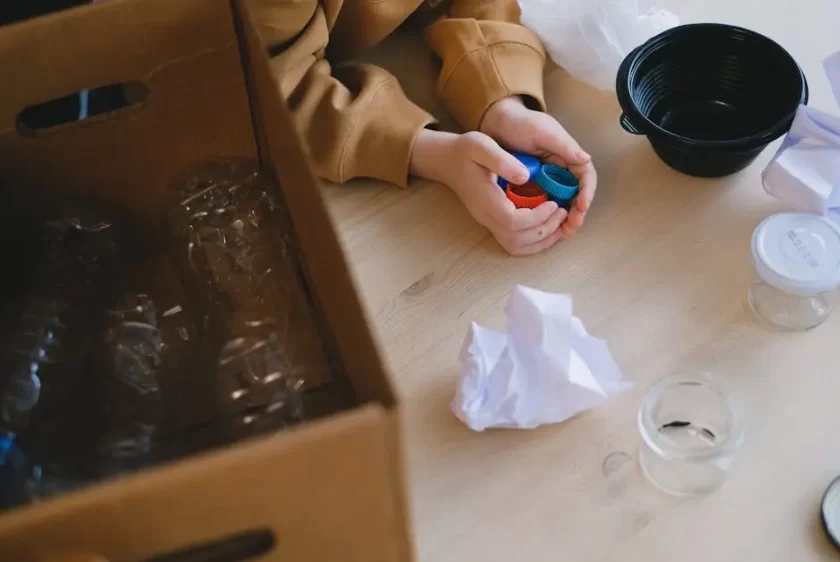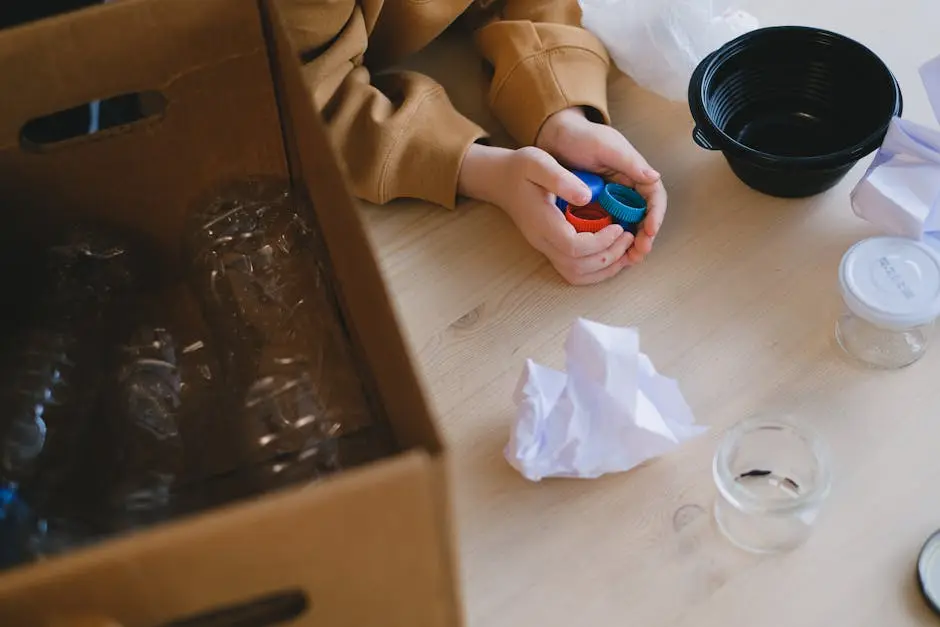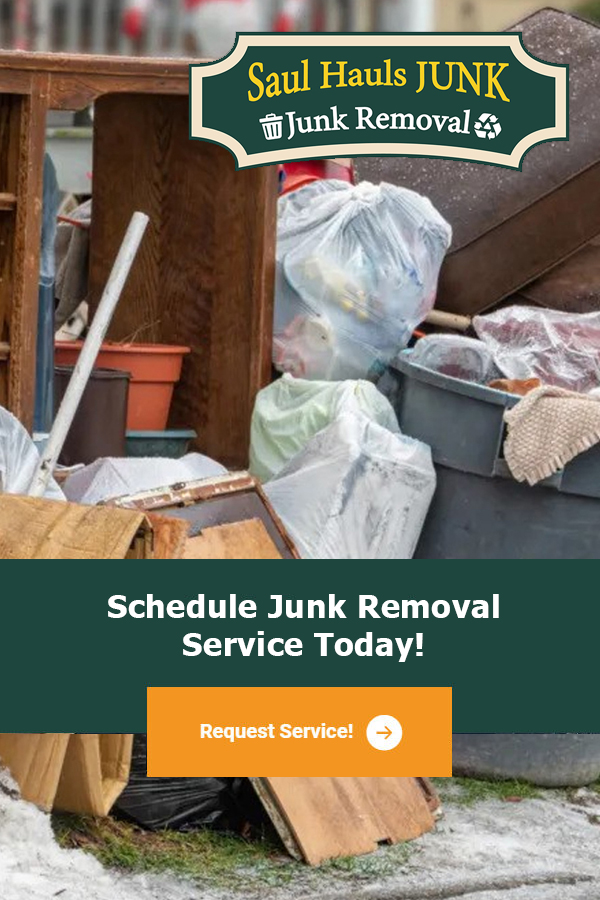
15 Items You Didn’t Know Could Be Recycled During a Junk Haul
When it comes to decluttering and getting rid of unwanted items, many people aren’t aware of what can actually be recycled during a junk haul. It’s not just bottles and cans anymore! In this blog, we’re going to explore some surprising items that you can recycle, helping you to be eco-friendly while making more space in your home.
1. Old Air Conditioners and Their Components
Air conditioners contain materials that can be recycled, including metals and plastic parts. Proper disposal can help recover valuable resources. Not only does this reduce waste, but it also ensures that fewer raw materials are needed for new products. Think about the lifetime of your air conditioner and how, when it’s time for an upgrade, those materials can live on in a different form.
Moreover, recycling air conditioners safely requires following certain procedures. Many facilities are equipped to handle and dismantle these units responsibly. If you’re unsure, your local waste management service can direct you to authorized recycling centers where the components are processed efficiently and safely.
2. Electronic Gadgets and Accessories
Old phones, chargers, and computer accessories often sit in drawers. These items can be recycled to extract precious materials and reduce e-waste. It’s surprising how many resources lie within these devices. For instance, smartphones contain gold, silver, and palladium, which can be reclaimed through recycling processes.
In addition, recycling electronics prevents harmful substances, like lead and mercury, from leaching into the environment. Many communities organize e-waste collection events, making it easier than ever to dispose of these gadgets responsibly. If every household took the time to recycle their old electronics, the positive impact on our planet could be significant.
3. Broken Furniture
You might be surprised to find that broken or old furniture can be recycled. Many materials can be processed, and some donation centers even take them for refurbishment. Think about your outdated couches or chairs – these items can have a new life rather than ending up in a landfill. Some wooden pieces can be transformed into new furniture, while metals can be repurposed for various uses.
If the furniture is beyond repair, many recycling centers can still extract elements like metal and wood. Before you throw it out, consider checking local recycling programs or swap events. It’s a friendly way to ensure that your old furniture contributes positively to someone else’s needs while keeping the planet a little greener.
4. Unwanted Clothing and Textiles
Clothing that you no longer wear can often be recycled into new fabric products or repurposed in various ways, reducing landfill waste. Think about your old t-shirts – instead of tossing them, they could be turned into rags or even insulation materials. Plus, many organizations accept donations of wearable clothing, extending the life of your garments while supporting those in need.
Also, recycling textiles helps combat the fast fashion crisis, promoting more sustainable practices. Check if there are local textile recycling programs in your area; many accept not just clothing, but even sheets, towels, and other fabrics.
5. Old Mattresses
While it may not seem obvious, many components of old mattresses, like metal springs and foam, can be recycled. Proper disposal can help keep these materials out of landfills. Mattresses can be dismantled into their individual parts, and each part can often find a new purpose. For example, wood can be reused, foam can become carpet padding, and metal can be repurposed.
Donating mattresses that are still in good condition is a fantastic way to recycle them. Many local charities are more than happy to take them and provide for those in need. So, next time you’re thinking of discarding your mattress, consider all the options available before it hits the trash.
6. Bicycles and Spare Parts
Old bikes and their parts can often be repaired, reused, or recycled. Many bike shops accept old bicycles for these reasons. Rather than letting a broken bike rust in your garage, consider giving it a new life. For instance, frames, wheels, and gears can often be repurposed or even sold as spare parts.
In addition, there are organizations dedicated to fixing up bikes for those in need. By donating your old bike, you not only clear space but also contribute to someone else’s mobility. Everyone wins!
7. Appliances with Hazardous Materials
Items like microwaves and refrigerators contain hazardous materials that require special recycling processes to handle safely. Many people are surprised to learn just how many common appliances fall into this category. It’s essential to understand that merely throwing them away is not an option.
Instead, search for designated recycling programs in your area equipped to handle these materials responsibly. These programs ensure that toxic substances are contained, protecting the environment and safeguarding public health.
8. Cooking Pots and Pans
Your old cooking gear might not be able to continue serving you, but many of the metals can still be recycled or repurposed. Aluminum pots and pans, for example, are highly recyclable. Some facilities may even offer take-back programs for kitchenware, making the process even more convenient.
In addition, consider donating items that are still in usable condition. Thrift shops, shelters, and community kitchens often welcome cookware donations, giving these items a chance to benefit someone else.
9. Yard Waste
Many people don’t realize yard waste like branches, leaves, and grass clippings can be recycled into mulch or compost, reducing landfill volume. Instead of placing these items at the curb, consider creating a compost pile in your backyard. It’s an excellent way to enrich your soil while lowering your waste output.
Should you prefer the option of professional service, many municipalities offer yard waste collection programs that turn these materials into compost or wood chips. It’s a smart way to contribute to sustainability while caring for your garden.
10. Old Sporting Equipment
From tennis rackets to golf clubs, old sporting goods can often find a second life through recycling or donation. Many sports stores offer trade-in programs or have specific recycling initiatives for equipment that’s no longer usable. It’s an effective way to ensure that your gear doesn’t take up unnecessary space while helping other aspiring athletes.
Additionally, consider local charities or community centers that host sports programs. They often welcome donations and can put your old gear to good use, promoting healthier lifestyles in your community.
11. Used Batteries
Rather than tossing used batteries, many places accept them for recycling due to the toxic materials they contain. This keeps harmful substances out of the environment. It’s surprising how many people are unaware of the threats posed by improperly disposed batteries – not only are they a waste of resources, but they can also leach hazardous substances into the environment.
By sticking to proper disposal methods and recycling, you contribute to a healthier planet. Check local regulations or recycling centers for safe disposal options, as many offer special collection days for battery recycling.
12. Light Bulbs
Certain types of light bulbs, like CFLs, can be recycled to recover mercury and glass, making the process safer for the planet. Many people simply throw these away, unaware of the risks associated with improper disposal. By recycling light bulbs, you play a part in minimizing toxic waste.
Look for local resources that accept light bulbs for recycling, as many hardware stores have drop-off bins. It’s a small effort that can yield big rewards for environmental protection.
13. Old Paint and Chemicals
While many people don’t think twice about it, hazardous waste like old paint can have recycling options. Proper disposal means safer communities. Paint, for instance, can often be recycled into new products, reducing the environmental impact of disposal.
Contact local waste management or recycling facilities to find out if they offer paint recycling services. Ensuring that these substances are dealt with properly protects both public health and the environment.
14. Unused Office Supplies
Pens, folders, and papers can often be recycled. Many office supply stores have take-back programs for these items. It’s easy to overlook office supplies, but they often contribute to waste in significant ways. Instead of tossing them, take a moment to consider whether your local store can help you recycle them.
Alternatively, you might find some creative solutions to give these supplies a second chance, like donating to schools or community organizations. It’s a small step that can inspire others to rethink waste in their own lives.
15. Expired Medicines
Though not all can be recycled, many local pharmacies or waste facilities have programs for the safe disposal of expired medications. It’s incredibly important not to flush these down the toilet, as they can contaminate water systems. Instead, becoming aware of proper disposal methods can help mitigate this risk.
Take a moment to check what your community offers in terms of medication take-back days or disposal bins. By participating, you not only clean out your cabinets but also contribute to public safety.


